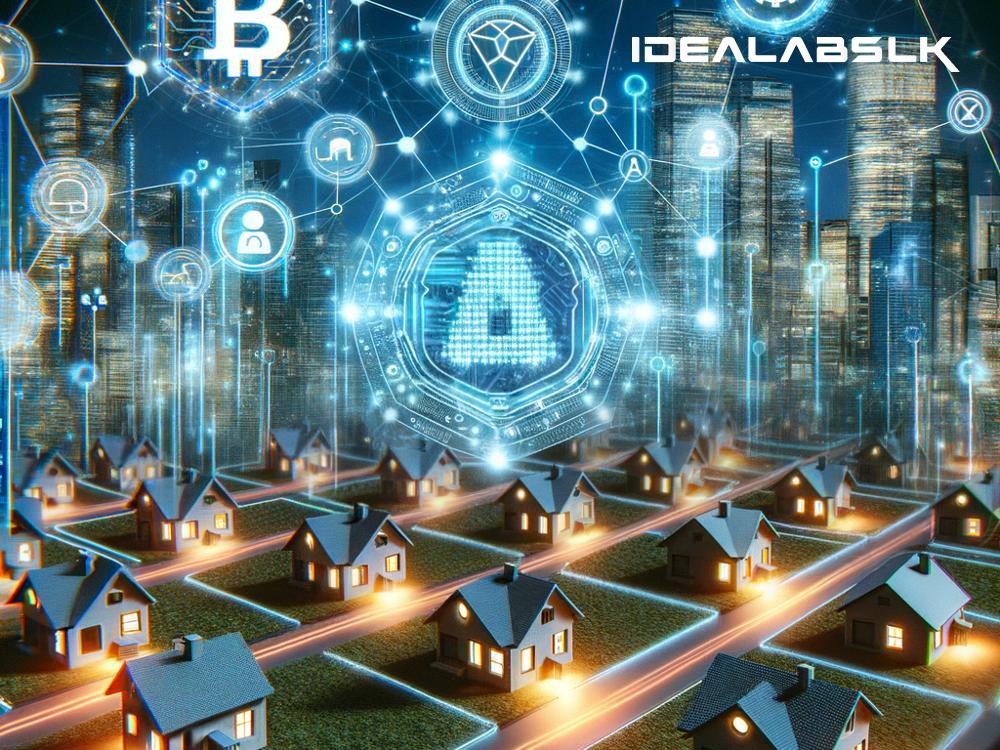Blockchain and AI for Real Estate: A New Era of Secure Transactions with Smart Contracts
Real estate has always been a major player in the economy, but it's also been a sector ripe with inefficiencies and plagued by slow, paperwork-heavy processes. But imagine a world where buying a house could be as simple and secure as ordering a book online. Exciting? Absolutely! And this isn't just a dream. Thanks to the innovative combination of blockchain technology and artificial intelligence (AI), this could very well be the future of real estate. Let's dive into how these technologies are revolutionizing the way we buy and sell properties.
What is Blockchain and How Does it Work in Real Estate?
At its core, blockchain is a type of database. It's a way of storing information in a digital format that's secure, transparent, and incredibly difficult to tamper with. Imagine a ledger that's not just held by one person or company but is instead duplicated thousands of times across a network of computers. Every time a new transaction occurs, a record of that transaction is added to every participant's ledger. This means that everyone has an up-to-date and accurate record of what's happening.
In real estate, blockchain can transform how property sales are conducted. Traditionally, buying or selling a house involves lots of paperwork, numerous checks, and various intermediaries like lawyers and bankers. However, with blockchain, this process can be streamlined significantly. Property details, including ownership history, liens, and zoning information, can be securely stored on the blockchain. This not only speeds up transactions but also reduces the possibility of fraud.
The Role of Smart Contracts in Real Estate
One of the most exciting applications of blockchain in real estate is the advent of smart contracts – self-executing contracts where the terms of the agreement between buyer and seller are directly written into lines of code. These contracts automatically enforce and execute the terms of the agreement once conditions are met, without the need for intermediaries.
In a real estate context, a smart contract could automatically transfer property ownership once payment is received, drastically reducing the time and cost associated with traditional property transactions. This is not only more efficient but also removes the potential for human error or fraud.
AI’s Contribution to Real Estate
AI adds another layer of sophistication to the real estate process. By analyzing vast amounts of data, AI can help identify trends and make predictions about the real estate market with a high degree of accuracy. This can be incredibly useful for investors looking to make informed decisions about where and when to buy or sell properties.
Additionally, AI can streamline property search and selection processes for buyers. Through machine learning algorithms, AI can understand a buyer's preferences and requirements, then sift through thousands of listings to recommend properties that best match these criteria. This not only saves time but also makes the property searching process much more personalized.
The Combined Power of Blockchain and AI in Real Estate
When you merge the secure, transparent nature of blockchain with the predictive power and efficiency of AI, you get a real estate process that's not only faster and safer but smarter as well. Transactions can be completed in a fraction of the time, with significantly reduced costs and a much lower risk of fraud.
For sellers, these technologies ensure that property listings are accurate and secure, and that transactions can be completed swiftly. For buyers, they offer a streamlined search process, secure transactions, and peace of mind knowing that all property information is accurate and verified.
The Future of Real Estate
While the combination of blockchain and AI in real estate is still in its early stages, it's clear that the potential is enormous. As these technologies continue to evolve and become more mainstream, we can expect to see a significant transformation in how property transactions are conducted.
The real estate world is poised on the brink of a digital revolution, where buying a house could be as simple and secure as making an online purchase. With blockchain and AI leading the charge, the future of real estate looks not only brighter but smarter and more secure than ever before. The journey ahead is indeed exciting, and it promises to make the dream of a seamless, efficient real estate process a reality.

